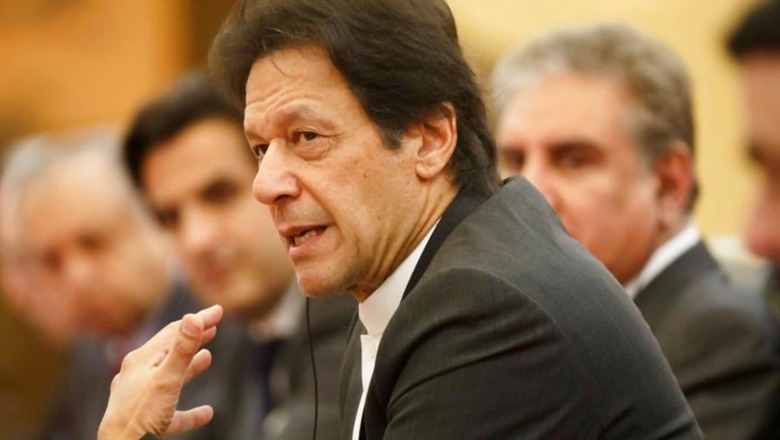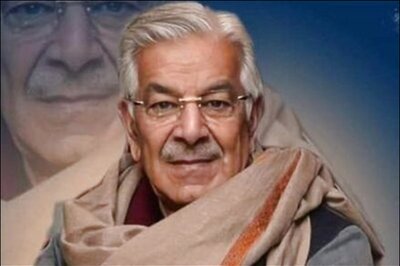
views
When Imran Khan took over as the Prime Minister in 2018, it was a special day for Pakistan’s democracy. It was the first democratic transition in the country’s history, which had oscillated between military rule and short stints of representative governance.
Imran Khan took over the reins from the government led by the Pakistan Muslim League (Nawaz) party, which ruled the country for a full term. Nawaz Sharif was the Prime Minister for the majority of the five years and later his brother Shehbaz Sharif completed the five-year tenure.
With Khan’s rise to power, there was a buzz that the popular leader could complete a full five-year term. In its 70-year history, Pakistan has seen the rule of more than 20 prime ministers. However, none could complete a full term.
The longest stint in power has been that of the country’s first prime minister, Liaquat Ali Khan, whose term lasted 4 years and 2 months. And it seems he may continue to hold the record, given the no-trust motion to oust Imran Khan.
Democratic upsurges
It could be said that there have been several upsurges of democracy in Pakistan as the country witnessed events of superficial democratic stints that did not last long.
After Liaqat Ali Khan, the country saw several prime ministers, but no one could complete five years in office. The concentration of power remained in the hands of the military and democracy couldn’t bloom.
The only times the country could see a constitutional government was during Zulfikar Ali Bhutto and later Nawaz Sharif.
Bhutto, the founder of the Pakistan Peoples Party, came to power on August 14, 1973, adopted a new constitution, and carried out a series of reforms. However, democracy was short-lived when General Zia-ul-Haq imposed martial law and Bhutto was hanged in 1979. He was the fourth-longest serving prime minister whose rule lasted over four years.
On the other hand, Nawaz Sharif served as the prime minister for three non-consecutive terms. He first became the PM in 1990, was ousted in 1993, returned to power in 1997, but a military takeover ended that stint in 1999. He occupied the post once more in 2013 but was removed by the country’s Supreme Court in 2017 over corruption charges.
After Sharif, when Imran Khan came to power, it was being seen as a consolidation of democracy in the country, which has had weak democratic roots. The no-confidence motion and likely collapse of the Imran Khan government show the fragility of Pakistan’s democracy. Islamabad is heading towards the same road of military dictatorship with intervals of democratic rule.
Khan’s fate has not been very different from his predecessors. His popularity, rise to power, and the subsequent decline has been very similar to those of someone like Benazir Bhutto.
Follow thy neighbour
Events in Pakistan cannot be seen in isolation. Its history and politics often sync with those of its neighbours.
In the late 1980s, Aung San Suu Kyi started demonstrations for democracy in Myanmar; it resonated in Pakistan. Around the same period, in 1988, Benazir Bhutto came to power after Zia-ul-Haq’s military government.
Despite being one of the most popular leaders, she could not remain on the post for long and ruled for two short spells.
Imran Khan’s fate can be likened to Bhutto’s, who despite emerging as a popular leader couldn’t sustain the hold on power.
With Khan losing the majority, it may not end well for the country, as history shows that if a civilian leader has been abruptly removed, the chances of a military swoop to restore order are high. It is also a well-known fact that the military enjoys deep clout behind the scenes and control over institutions.
The fallout
Imran’s decline is not just news for Pakistan, but it shows the effects of and has ramifications for the politics in the subcontinent and the world.
Ukraine is in chaos after the Russian invasion. Sri Lanka is seeing an unprecedented economic crisis. Pakistan’s bête noire Afghanistan just witnessed the formation of an authoritarian Taliban government.
Such events in a democracy are broadly contagious and often have a domino effect.
Read the Latest News and Breaking News here















Comments
0 comment